Are you considering stepping away from your seasonal job but unsure how to compose the perfect resignation letter? Crafting a clear and respectful resignation note can make all the difference in leaving a positive impression. In this article, we'll guide you through a simple template that highlights your gratitude while stating your decision effectively. So, grab a cup of coffee and let's dive into the details that will help streamline your resignation process!
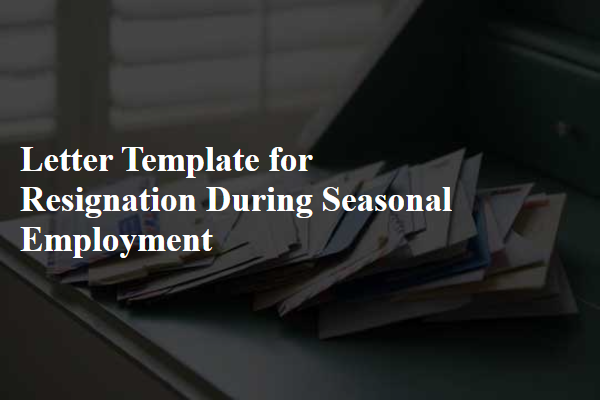
Professional tone and polite language
During seasonal employment, individuals often encounter the need to resign gracefully and professionally. Crafting a resignation letter reflects both gratitude and professionalism. A detailed resignation letter should include the employee's position, dates of employment, and a brief mention of reasons for leaving. For instance, an employee might note their appreciation for the experience gained while working at a seasonal company such as a winter holiday resort in Aspen, Colorado, where they may have developed valuable customer service skills while assisting guests. Highlighting key learnings and expressing gratitude can leave a lasting positive impression. A professional tone ensures the farewell is respectful, maintaining a strong network connection for future opportunities.
Clear statement of resignation
Seasonal employment often requires clear communication regarding the end of service. A resignation statement can serve to formally communicate this decision. For instance, an employee engaged in a summer tourism position may specify their last working day, typically aligning with the conclusion of the seasonal peak. Moreover, addressing the employer, often a specific manager or HR representative, adds professionalism. Including gratitude for the opportunity enhances the farewell sentiment, fostering goodwill for potential future opportunities. All essential details, such as position title and seasonal dates, reinforce clarity.
Effective date of resignation
Submitting a resignation during seasonal employment requires clarity regarding effective dates and acknowledgement of the temporary nature of the position. For example, if working at a ski resort in Aspen, Colorado, with a seasonal term starting in November and expected to conclude by April, the resignation letter should specify the exact date of departure, such as March 31. State the reason for leaving, which could be personal commitments or plans for further education. Mention gratitude for the opportunity offered during the seasonal term, highlighting positive experiences and skills gained while working at the resort. This approach maintains professionalism and goodwill, ensuring potential future employment references remain intact.
Expression of gratitude
Expressing gratitude during a resignation from seasonal employment reflects professionalism and leaves a positive impression. Seasonal roles, such as those commonly found in retail or hospitality, often foster teamwork and community spirit. Acknowledging the opportunity provided by your employer can enhance your professional network. Highlighting specific experiences, such as skills gained or colleagues' support, adds a personal touch to your departure. Emphasizing appreciation for management's guidance can strengthen future references. Standing out positively in memory promotes goodwill, ensuring a lasting professional relationship that may benefit future endeavors.
Offer to assist in transition
Seasonal employment often requires flexibility and understanding as workers complete their terms. A resignation letter in this context should clearly state the intent to resign while expressing commitment to a smooth transition. A worker named Alex, employed at the bustling Harvest Festival, Portland, Oregon, might write about offering training for a replacement, ensuring seamless operations during the peak season. The letter could mention specific dates to highlight the end of employment and show gratitude for the experience gained at the seasonal event, enhancing relationships for future opportunities.
Letter Template For Resignation During Seasonal Employment Samples
Letter template of resignation in light of seasonal contract expiration.
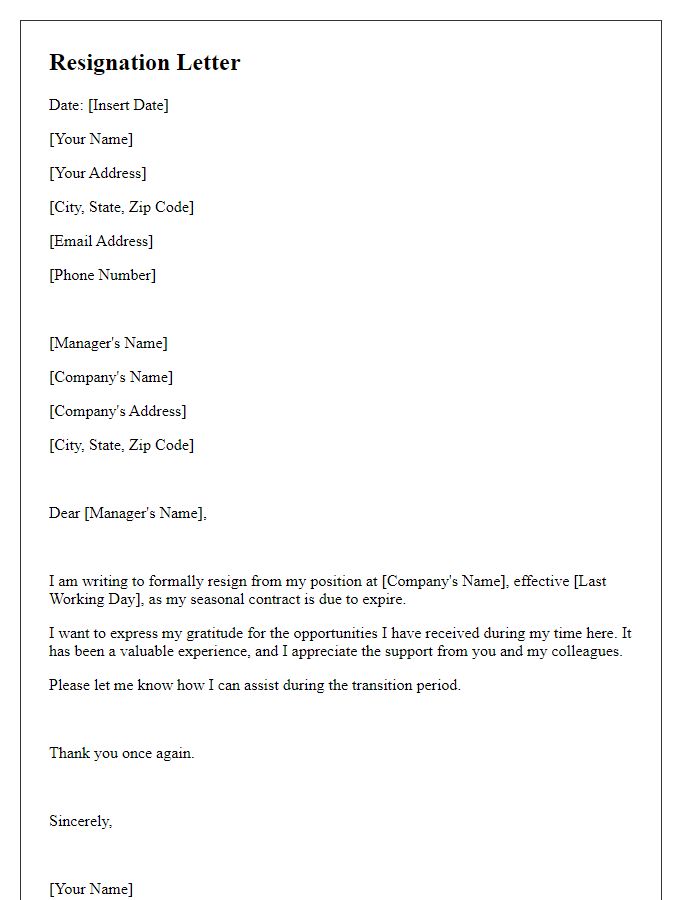

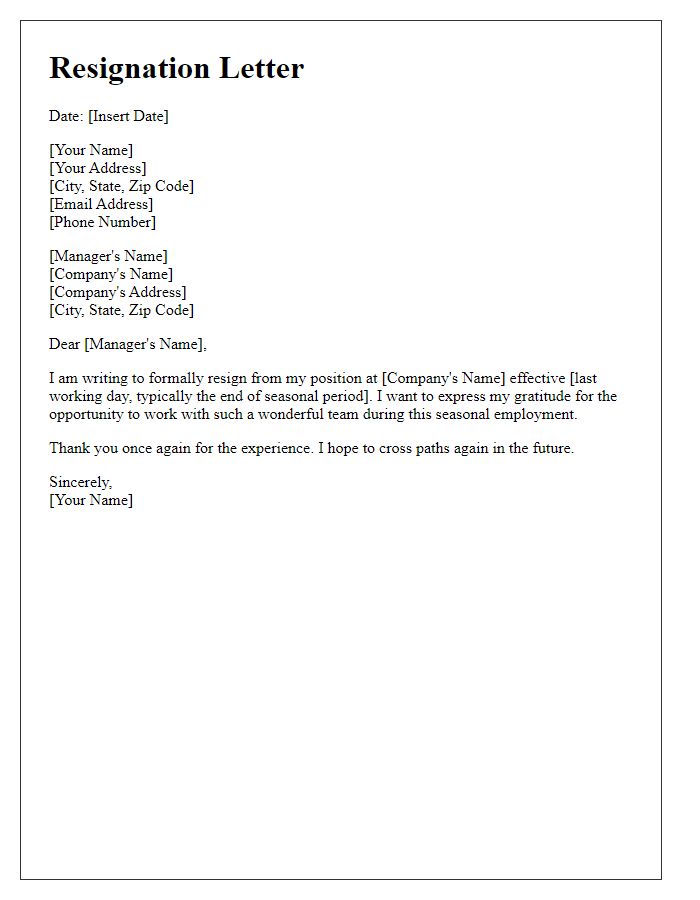
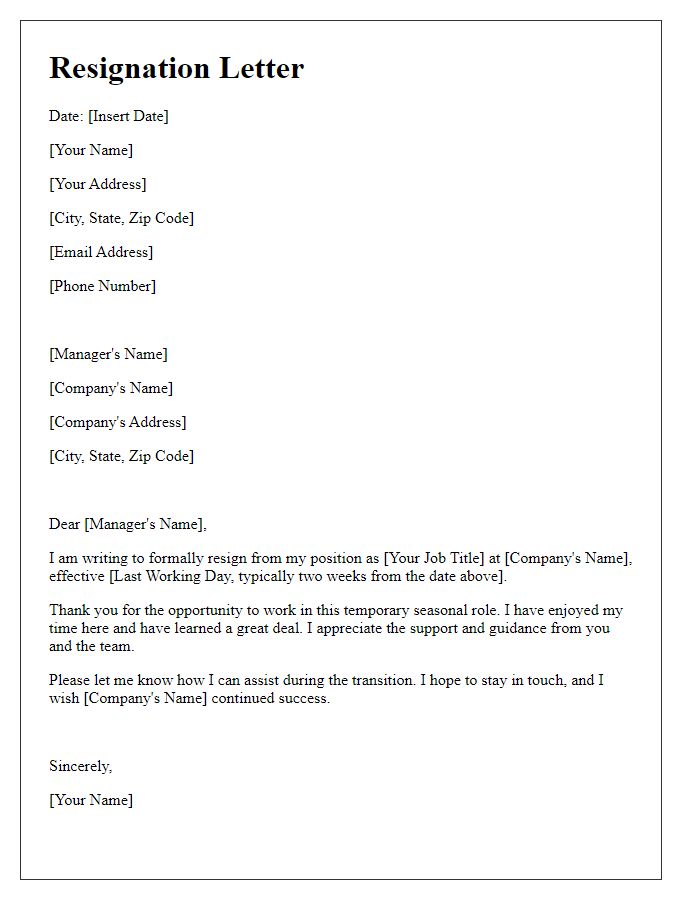
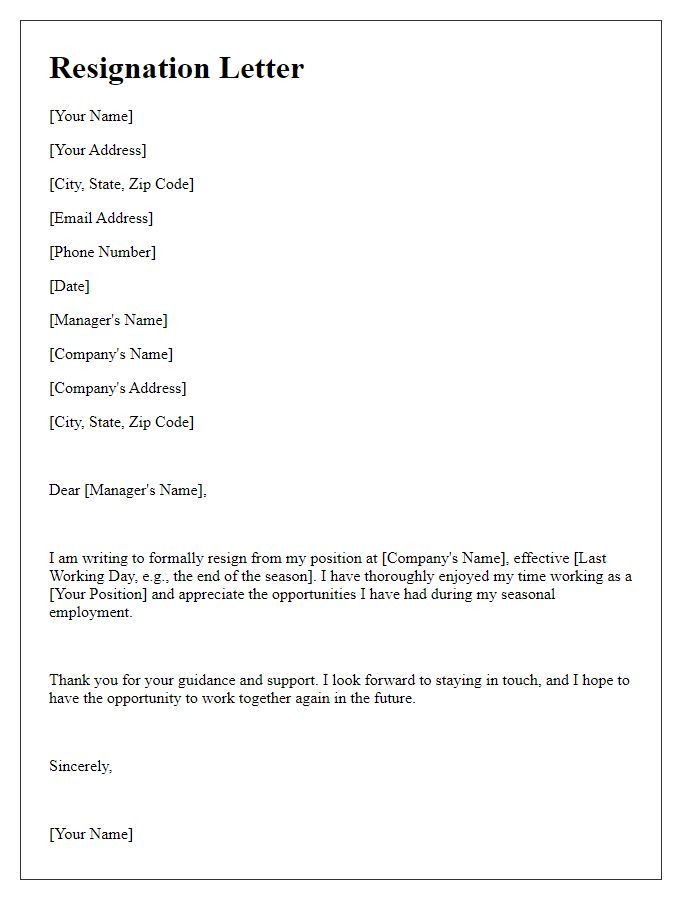
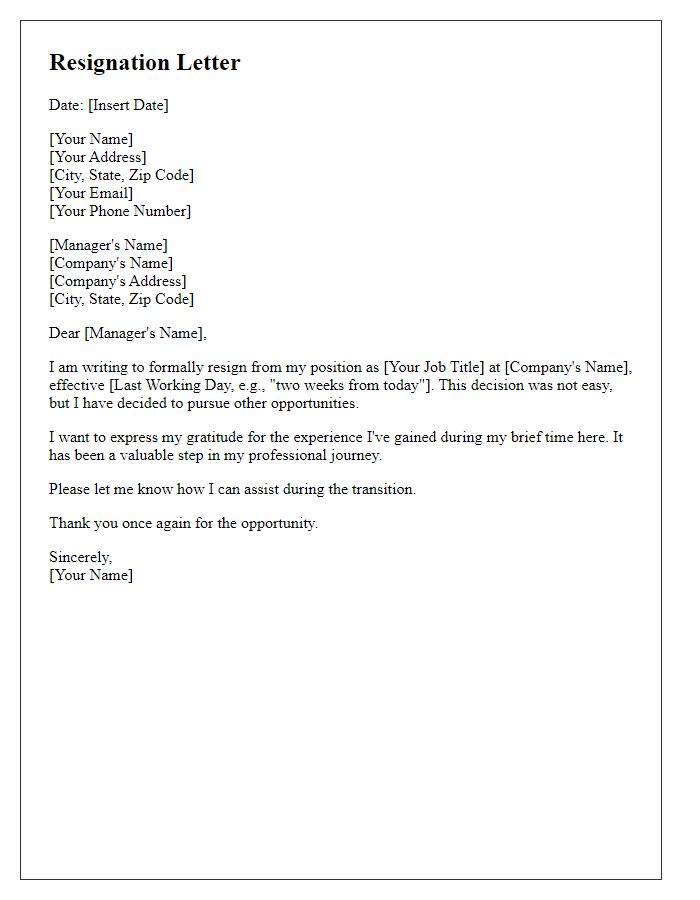
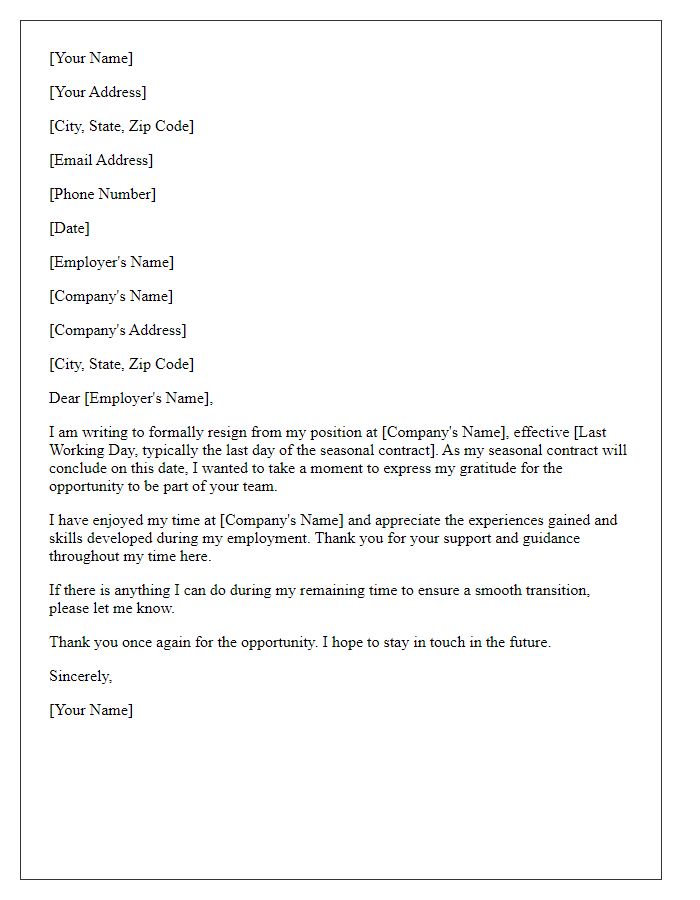
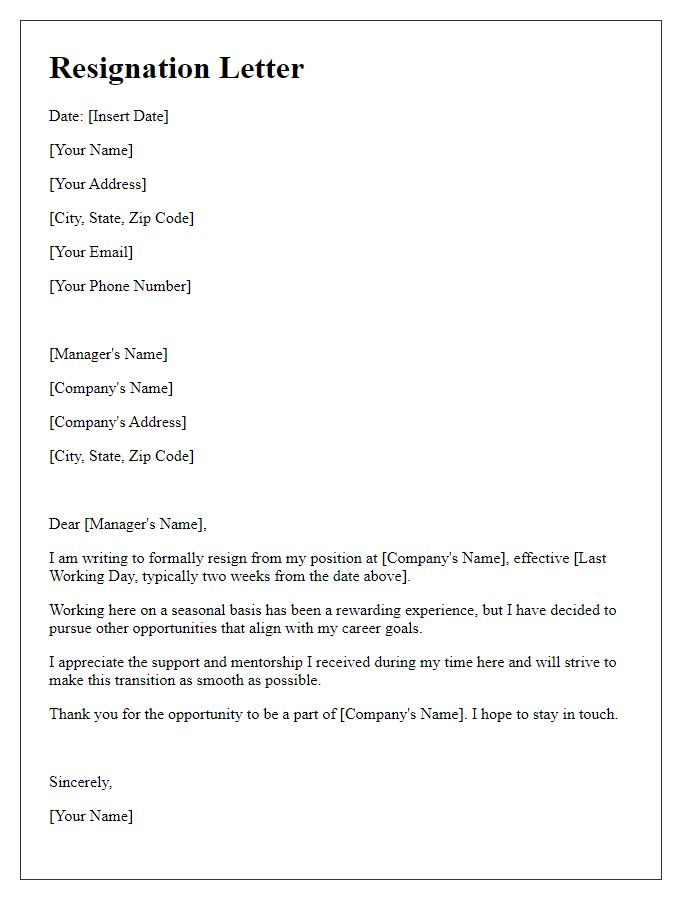
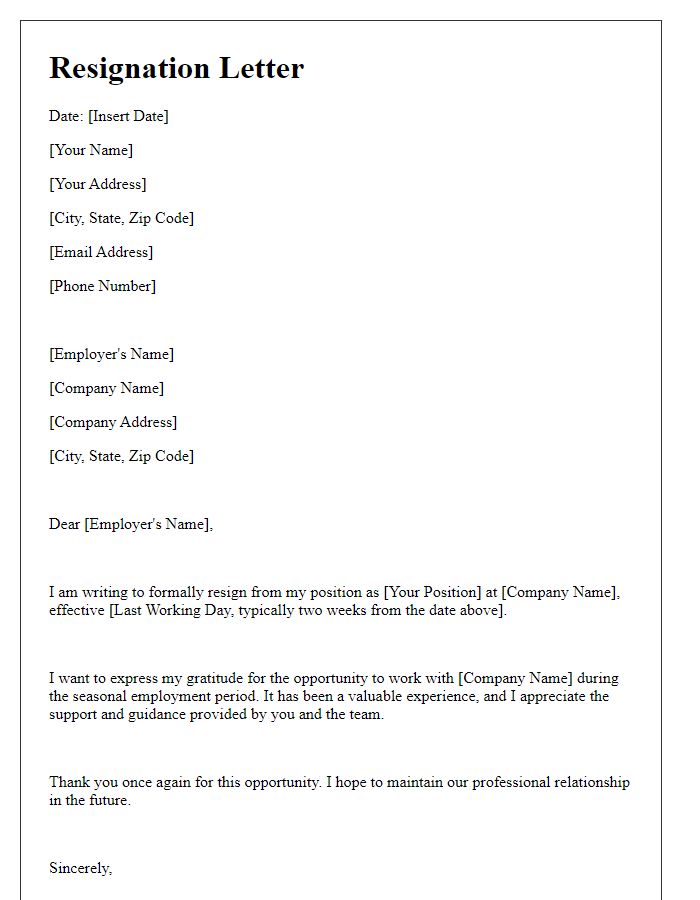
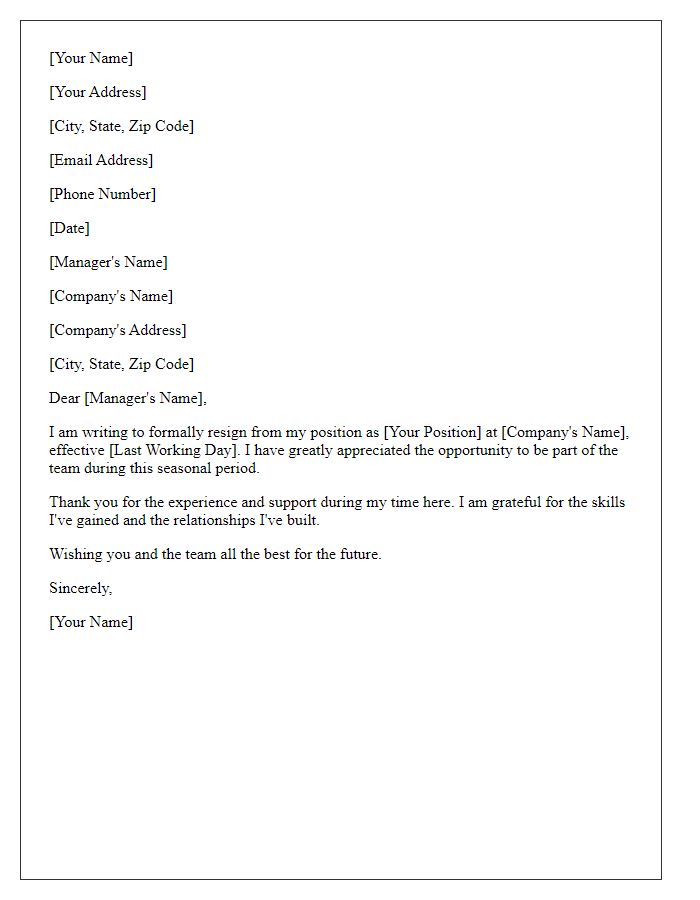
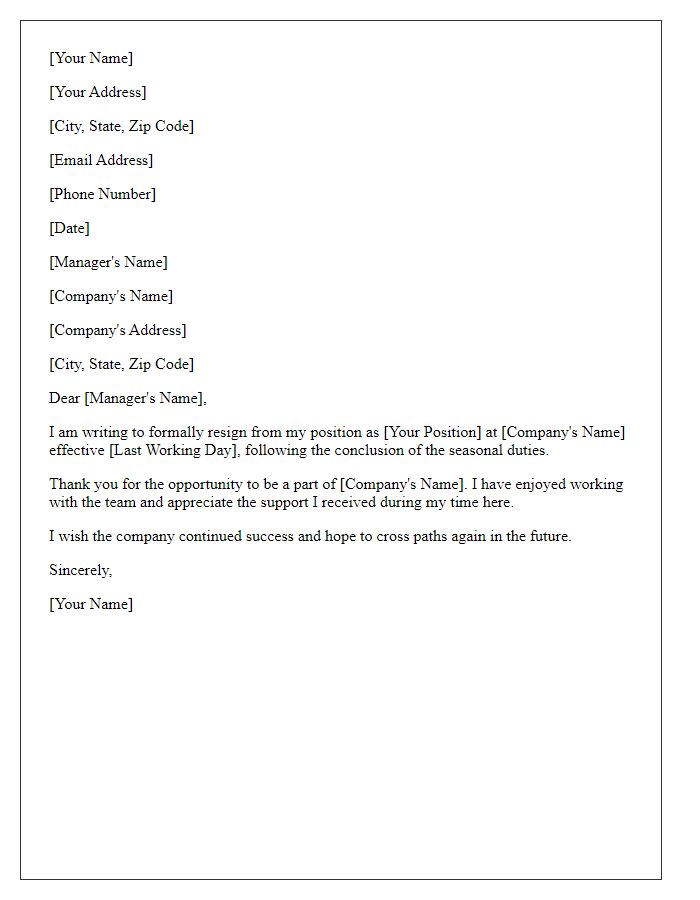


Comments